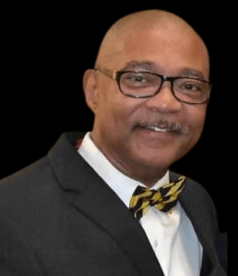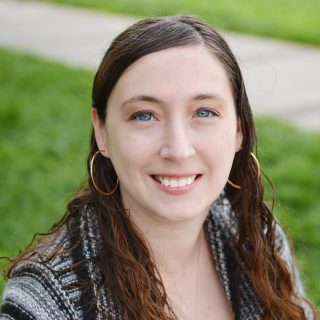(3/28/2022: Updated to amend a quote by Sabrina Coone-Godfrey)
Most years, there aren’t enough candidates running for the Winston-Salem/Forsyth County School Board to necessitate a primary election. This year, amid heightened interest in school curricula and social issues, 28 people registered to run, giving us primaries in every race.
A dozen candidates have filed to run for three at-large seats: four Democrats and seven Republicans. Three from each party will advance to the November general election, along with Libertarian candidate Regina Garner, who has no primary opponent.
Currently, Democrats hold all three at-large seats, but two of them — Andrea Bramer and Elisabeth Motsinger — did not file for re-election this year.
Candidates are published by political party and alphabetically by last name. Their responses have been edited and shortened for clarity and length.
REPUBLICANS
Sarah Absher (Winston-Salem)
According to Absher’s personal Twitter and LinkedIn profiles, she is currently a Registered Nurse in the Winston-Salem area. Absher does not appear to have a campaign website or social media accounts. She declined to answer candidate questions.
Carolyn Albright (Pfafftown)
According to Facebook and her candidate email address, Albright is a professional photographer. TCB did not receive a response from Albright and there is currently no campaign website or social media accounts for her.
Robert Nunzio Capizzi (Winston-Salem)
According to Capizzi’s LinkedIn profile, he is the owner of CapED Educational Group, based in Winston-Salem. The company, which was founded in 1992, works to help students excel in academics and train for college entrance exams. Capizzi is also a Wake Forest University alum. He does not appear to have a campaign website or social media account.
Allen Daniel (Clemmons)

“Many students in our district excel, but far too many students graduate without the education or life skills necessary to be successful once they walk across that stage.”
Daniel volunteered in the WS/FCS school district from 2010-15, when he left his software-development career for a one-year internship at Early College of Forsyth for licensure as a middle or high school math teacher. He taught during the 2016-17 school year and was a sub in fall 2017. Additionally, he is a math tutor, both privately and for a local non-profit organization.
He seeks to give “a voice to those who feel they either do not have a voice, or cannot voice their concern without fear of retaliation.”
His campaign focuses on addressing an inequitable distribution of resources, both human and financial, in Forsyth County and holding every student accountable for their behavior.
“The purchase of playground equipment falls to the individual school’s PTA,” he said. “For some schools it is an insurmountable obstacle. There is at least one WS/FCS elementary school that has not been able to raise sufficient funds to purchase playground equipment in over a decade. Additionally, many schools face an issue of a lack of discipline. The students who want to learn cannot learn to their full potential due to constant disruptions.”
Regarding critical race theory and African American history studies he said, “There is more that unites the races than divides us. We should value and acknowledge our similarities and respect and acknowledge our differences. I believe we should teach all history. As an adult, I have learned much about the racial atrocities in our nation’s history that I never learned in school. That should not be. I believe there is an age when children are too young to understand and are unnecessarily traumatized by the intimate details of such atrocities. By middle or high school, I believe students are mature enough to understand and have informed discussions on such matters.”
Tabitha Hackett (Winston-Salem)

Hackett declined to answer candidate questions. According to her campaign website, she was born and raised in Forsyth County and has lived in the area her entire adult life. She attended school in the WS/FCS system; her two sons and her stepdaughter attended local schools. Hackett lives in Forsyth County and is employed in the accounting department of a local auto dealership.
From her website: “I do not believe politicians have the answers to the issues within the school system. I believe the parents have those answers. It is my goal to see as much power as possible placed into the hands of the parents whom the school system serves. I am no politician. I am a parent. For many of us, the school system has become a source of stress and concern. Help me turn the school board into a body that listens to parents’ concerns and considers parents’ feedback.”
Michael Hardman (Pfafftown)

“My primary interest and focus is with the students and the teachers.”
According to a video posted on Hardman’s campaign Facebook page, he attended schools in the WS/FCS district and graduated from Mt. Tabor High School. He studied civil engineering at Virginia Tech and is a licensed civil engineer who works for a local construction company, at which he helps build schools. His three children attend WS/FCS ranging from elementary to high school.
Based on his campaign website, Hardman plans to focus on the following issues: teaching basic subjects without political agenda or bias, reducing the amount of screen time that students experience for school and homework, teaching students about American exceptionalism, restoring high expectations and empowering administrators to enforce behavioral standards so that learning can be achieved without distractions, and making curriculum and lesson materials easily available to parents online so they are able to make personal health decisions for their families.
Hardman shares, “My platform addresses key issues and challenges that I believe will lead to greater success for all involved.”
Millie Williams (Kernersville)
TCB did not receive a response from Williams and there is currently no campaign website or campaign social media accounts for her.
DEMOCRATS
Sabrina Coone-Godfrey (Winston-Salem)

“We need resources to address the social and emotional needs of students to ultimately impact the academics.”
Coone-Godfrey has been an active volunteer in the WS/FCS for the last nine years. She has two children in the district, both at Title 1 Schools.
“While we have academic hurdles we need to address, we also need to acknowledge that many of our children carry a heavy burden from outside the schools,” she said. “We are also in the middle of a staffing crisis. When our staff is overworked, underpaid, and feels unappreciated, it becomes an equity issue. We need lobbying both at the local and state level for funding so that we can make sure we are able to retain and recruit quality staff to our district.”
Her campaign focuses on pushing for more lobbying for GA funding and securing grants. Additionally, she wants to free up teachers’ time to get them back to teaching. She said, “There are too many demands on educators to ‘teach to a test’ vs. meeting students where they are and helping them grow to their full potential.”
(Updated 3/28/2022): When asked about critical race theory and teaching African-American history, Coone-Godfrey said, “I think that critical race theory is a college level course and it is not currently being taught in our schools. I do believe that true and accurate history should be taught.”
Deanna Kaplan (incumbent) (Winston-Salem)

“All students should feel like our schools are safe learning environments and receive the same attention and quality of education.”
Kaplan is the only incumbent running for re-election in this year’s at-large school board primary election. She won the at-large seat in the 2018 election and currently serves as the Board Chair.
“With five children graduating from Forsyth County Schools, I’ve had a genuine commitment to help make our schools the best they can possibly be,” she said. “I’m running for reelection to continue this important work. As Chair, I believe I have made great strides in bringing our board together to focus on children first and providing the best education possible.”
If re-elected, she plans to focus on teacher recruitment and retention, adequate pay to attract the best teachers, competitive pay for support staff, custodians, cafeteria workers, and bus drivers, learning loss, third-grade literacy, and closing the achievement gap. Her biggest push will be to increase state funding so WS/FCS can attract and keep “our most valuable resources, our teachers.”
Kaplan issued the following statement on teaching African-American history in schools: “It is important to teach about all races and cultures in schools. Every student deserves to feel seen and to be validated and celebrated for their similarities and their differences.”
Kimberly Stone (Winston-Salem)

“Failure to address the mental and health issues burn out is causing in our school system will result in the loss of great teachers and very bright students.”
Stone has been an active and involved parent volunteer for the last 12 years while her two children attended WS/FCS. At the onset of the pandemic and throughout the first year of it, she partnered with the guidance counselors and school food banks to keep elementary, middle and high school food pantries stocked. She said, “I am running for the school board because I feel as if the focus has gotten away from how to best serve our children.”
If elected, Stone plans to focus on creating stronger alliances with teachers, putting in better support systems for students, adding more incentives for student teachers for teacher retention, and engaging in programs that push towards career placement and futures that will help students escape the cyclical poverty the county has battled for decades.
Stone said, “My biggest concern is the cracks that many of our students have fallen into. We need an education system that works for all kids, whatever their background and natural abilities. By work, I mean it maximizes their human potential without breaking their spirit in the process.”
Regarding critical race theory and African-American studies Stone said, “As of right now, North Carolina and South Carolina departments of education said critical race theory will not be taught in schools this year. My honest opinion is those who are using critical race theory as a rallying cry are not really thinking about the curriculum, they are thinking about an issue that they want to emphasize. A sound understanding of U.S. history must be firmly grounded as an educational endeavor, not a political project.”
Richard Watts (Winston-Salem)

“I am running as an educator for education.”
Watts has served in Forsyth County public education for more than 32 years. During that time, he was a teacher at Wiley Middle School, an assistant principal at Southwest Elementary School, and principal of Kimberley Park Elementary, Julian Gibson Elementary School and Winston-Salem Preparatory Academy School. He was named ‘Principal of the Year’ twice. He received an Education Specialist Degree and master’s degree from Appalachian State University, and a bachelor’s degree from Wake Forest University.
“I am running for the WS/FCS school board because I would like to see our school system become the best in the state at education and providing the best opportunities for all students,” he said.
His platform focuses on safety for students and staff, creating a sense of community in schools, academic achievement and closing the achievement gaps, building relationships and respect within schools through increasing morale, and sustainable funding.
When asked about critical race theory and African-American history Watts said, “I was part of the first African-American history infusion project for the district. Critical race theory is a theoretical framework that refers to a way of analyzing systems, institutions, and power through a lens of race and racism. In the state of NC, critical race theory is not a part of the public-school curriculum. African-American history is United States history, and it should be taught as such. I believe there should be additional course offerings as a separate course for those students who want to take a deeper dive into the great history of Africa and the complexities of African American History. There is currently an African-American History course being written at the Advancement Placement level that should be embraced by WS/FCS once it has been fully developed.”
Join the First Amendment Society, a membership that goes directly to funding TCB‘s newsroom.
We believe that reporting can save the world.
The TCB First Amendment Society recognizes the vital role of a free, unfettered press with a bundling of local experiences designed to build community, and unique engagements with our newsroom that will help you understand, and shape, local journalism’s critical role in uplifting the people in our cities.
All revenue goes directly into the newsroom as reporters’ salaries and freelance commissions.


Leave a Reply